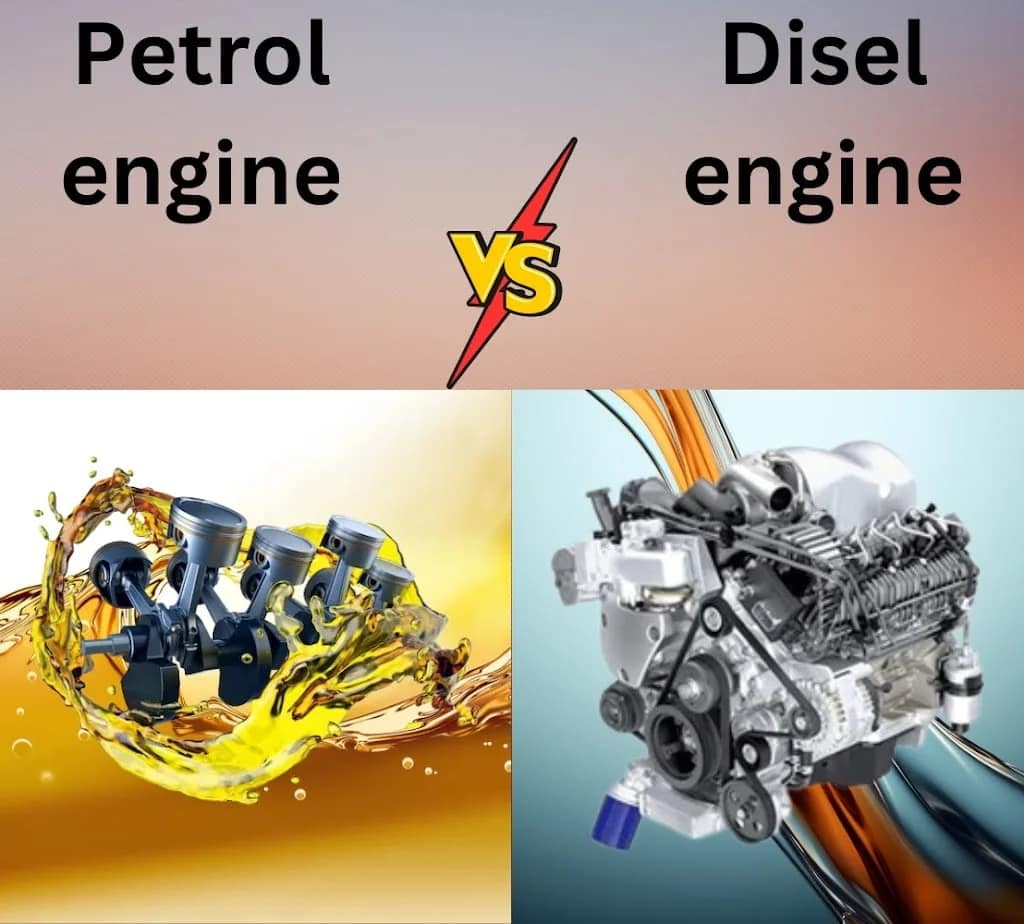Introduction
Modern engines, unlike traditional ones seen as the vehicle's "heart," convert fuel into motion using mechanical processes. Internal combustion engines (ICEs) are mainly classified as gasoline or diesel types, which dominate globally. This blog explores engine fundamentals and the differences between hot and cold engine types.
What is an Engine in an Automobile?
One of the basic engine names is 'motor,' which refers to a mechanical tool that burns fuel to create power. This complex system includes parts such as the fuel injector, crankshaft, cylinders, and pistons. Inside the cylinders, the pistons ignite the fuel and trigger combustion, which drives the crankshaft and converts the energy into mechanical motion
Difference between Petrol engine and Disel engine
| Petrol engine | Disel engine |
|---|---|
| Petrol engines, frequently called gasoline engines are operated on the basis of petrol (gasoline). Instead of using spark plugs only for beginning combustion in the cylinder, they will likely use spark plugs to ignite the air-fuel mixture. | Diesel engines run on diesel fuel, which is heavier than gasoline and has lower volatility. Unlike petrol engines, diesel engines rely solely on compression to ignite the fuel and do not use spark plugs. The engine compresses air molecules so intensely that the resulting heat causes the diesel fuel to ignite automatically. |
| Petrol engines typically have lower compression ratios (around 8:Fuel Consumption per mile for gasoline operated vehicles is in between 1 to 12 times more compared to diesel engine. A lower compression makes the whole process smoother, and hence favors higher RPM, which is usual. | Diesel engines have higher compression ratios (around 15:1-25: e) installing turbochargers and compressions ignition chambers. Higher compression ratio develops a higher thermal efficiency and in turn, causes better fuel efficiency for diesel engine. |
| Petrol engines deliver higher power at higher RPM, making them ideal for situations that demand fast acceleration and quick response. Manufacturers commonly use them in hatchbacks, sports cars, and motorcycles. | It is diesel engine that makes torque generation its forte, particularly in the lower RPM range. Hence they offer such vehicles as pickup trucks, buses and SUVs, the towing capacity and the fuel economy of which they are very good at. |
| The lowest gasoline combustible engines are observed mostly in the largest trucks and only in some of the fixed speeds mode. | Diesel engines convert more of the chemical energy within diesel fuel into power than gasoline engines and for each kilowatt of work they require less fuel than their gasoline counterparts. Their high productivity is the reasoned for their massive utilization in transport and long-way companies. |
| The carbon dioxide and the hydrocarbon emissions of petrol engines are the greater than those of the diesel engine's emissions. On the contrary, they are actually more restricted in their outflow of NOx and particulates matter. | Diesel engines produce lower CO2 emissions but higher levels of NOx and particulate matter. Advancements in diesel engine technology, such as selective catalytic reduction (SCR) systems, have helped reduce emissions significantly. |
Conclusion
In conclusion, engine choice depends on factors like vehicle size, use, performance, fuel efficiency, and environmental impact. Gasoline engines suit smaller, performance-driven cars, while diesel engines offer high torque and fuel economy for heavy-duty or long-distance driving. Understanding these differences helps buyers choose the right engine for their needs.
